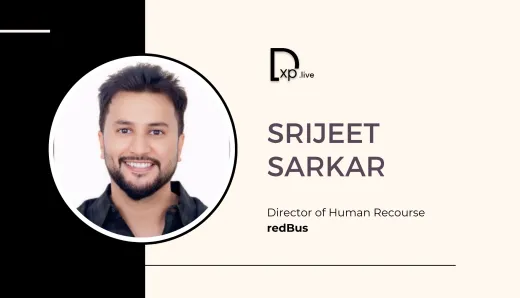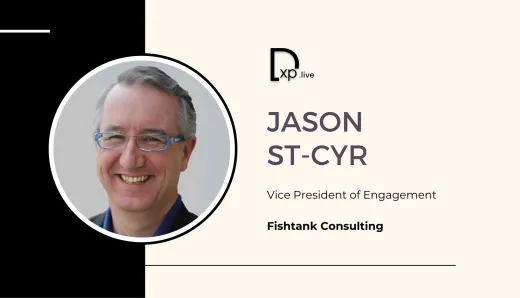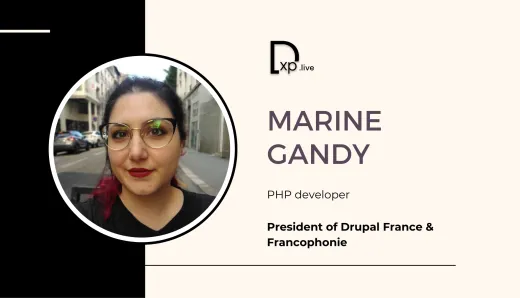Orchestrating Drupal’s Global Impact: Inside the Community Leadership of Surabhi Gokte
How Strategic Event Coordination and Non-Code Contributions Are Empowering Drupal’s Worldwide Growth
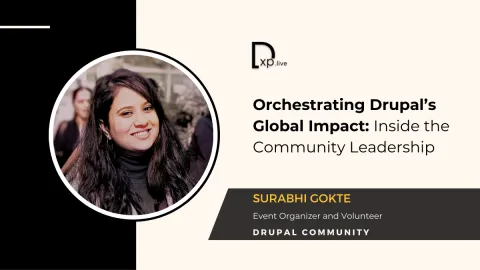
Surabhi Gokte is a dedicated and influential member of the Drupal community, known for her extensive non-code contributions and leadership in event organization. Since 2016, Surabhi has been at the forefront of various Drupal initiatives, including coordinating major events like DrupalCons and DrupalCamps, managing social media strategies, and overseeing volunteer activities across the globe. Her ability to manage multiple roles effectively, coupled with her strong communication skills and passion for community building, has made her a vital force in the Drupal ecosystem. Surabhi’s work is instrumental in fostering collaboration, inclusivity, and innovation within Drupal, helping to shape its future and expand its global reach.
In the growing world of open-source technology, Drupal stands out as a leading content management system, powering millions of websites across the globe. What truly sets Drupal apart is not just its robust technical capabilities but its vibrant, diverse community of contributors who drive its continuous growth and innovation. At the heart of this community are individuals who go beyond code, fostering connections, organizing events, and ensuring that the Drupal ecosystem remains inclusive and collaborative.
In this interview, we delve into Surabhi’s journey, exploring her insights on the challenges and rewards of community leadership and her vision for the future of Drupal.
You've been involved with the Drupal community for nearly a decade. What drew you to Drupal, and what has motivated you to stay so deeply engaged with the community?
Surabhi: My connection with Drupal started during my college days. We had a subject in our last semester where Drupal was a small part. Later, I got placed in a company that was a Drupal agency, Srijan Technologies. It was really nice to understand how the CMS works. Although I didn't stick with coding after my internship and moved to testing and then community management, I can say that I followed the quote that is very famous within the Drupal community: "Come for the code, stay for the community." That's literally what I'm doing.
The community is the main reason I've stayed. Wherever I go and whichever event I work with, I just feel that the community here is something different. It's not just when you're doing it for the first time; it always feels good. Drupal's community is unlike any other I've encountered. It's a global network of people who are not just passionate about technology but are genuinely supportive and welcoming. Wherever I go and whichever event I work with, I find this strong sense of belonging that makes Drupal feel like home. The community is inclusive, collaborative, and always ready to help each other out, whether you're a seasoned developer or a newcomer.
There’s a shared ethos in the Drupal community that goes beyond just building websites—it's about building relationships and fostering an environment where everyone feels valued and encouraged to contribute. This sense of camaraderie and the opportunity to make a tangible impact keeps me deeply engaged and motivates me to continue contributing in various capacities. Once you're a part of this community, it becomes more than just a professional network; it feels like an extended family, and that’s something you just don’t want to leave.
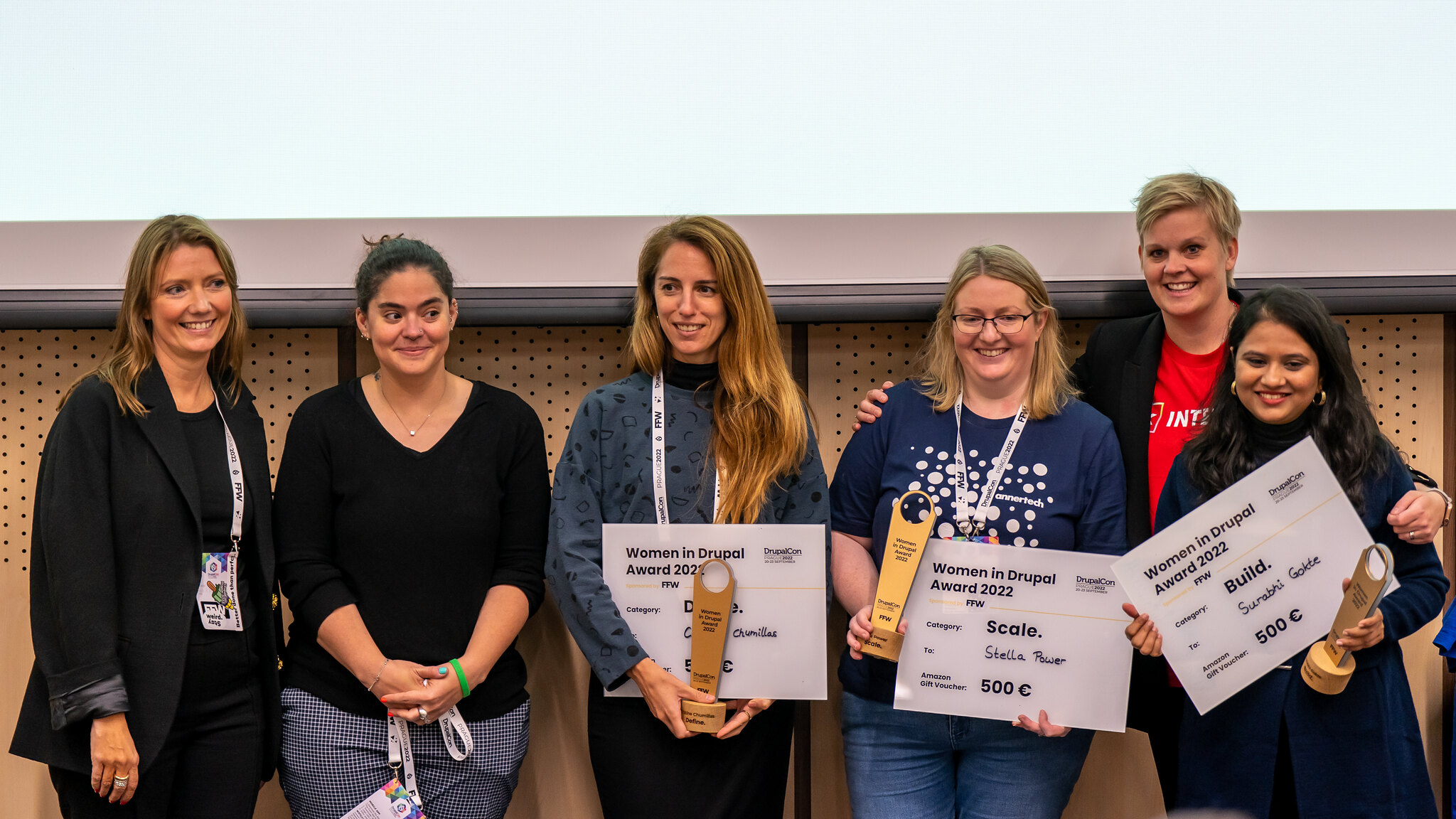
You won the Women in Drupal 2022 award in the Build category. How do you see this contribution impacting the Drupal community, especially women in technology?
Surabhi: This award has definitely given a platform to highlight women's contributions within the Drupal community. While there's no gender discrimination in Drupal, there was previously no specific recognition of women's work. The Women in Drupal award showcases that women are working in the same capacity as men, in both technical and non-technical roles. This award celebrates women and their contributions.
From a Drupal perspective, this recognition is crucial. Drupal, being an open-source community, thrives on diverse contributions. By highlighting women's work, we're encouraging more women to participate actively in various aspects of Drupal development, from coding to documentation, from project management to community organizing. This diversity leads to more innovative solutions and a more inclusive community overall.
When this award was launched in 2022, I was one of the first three winners. It felt like a responsibility to pave the way for others, showing that women can take on leadership roles in the Drupal community. This award can inspire more women to contribute to Drupal projects, speak at Drupal events, or take on leadership positions in Drupal initiatives. Ultimately, this leads to a stronger, more diverse Drupal ecosystem, which benefits everyone in the community.
Your contributions span from social media management to volunteering and coordinating Drupal events. How do you juggle these diverse responsibilities, and which do you find most fulfilling?
Surabhi: So if I have to choose one thing, I don't think that will be an easy task. I really enjoy all kinds of different tasks that I do. But I think social media would be something that I really, really enjoy. I'm not an extrovert person, but through social media, I think I'm able to express myself better. I'm part of social media teams for different events, so I have to be a little different with my writing for each event. It gives me that space to be creative. Not only do I enjoy writing, but I also love creating graphics, playing with colors, etc. It gives me great joy!
LinkedIn and Twitter are the most used social media platforms within the Drupal community. They are the platforms where people are most active. But I'm also liking Instagram these days, although the Drupal community is not very used to getting updates on Instagram. It's much more informal, but it’s emerging.
When I'm not at an event, I'm definitely enjoying social media. But when I'm at an in-person event, I enjoy being a runner. That was one of the first ways to contribute in a non-code way back in 2016 at Drupal Camp Delhi. I especially enjoy being at the registration desk because that's the point where you can meet everyone. I get to meet my old friends and make some new ones. It's the first point of entry to any event, a place where everyone expects to be welcomed. So that's the best and most exciting place to be when you're at an event.
Can you share your experience working with the Drupal Social Media Team? What strategies have you implemented to ensure consistent and impactful messaging?
Surabhi: There isn't a single Drupal Social Media Team. Instead, there are specific social media teams for different initiatives like Promote Drupal or Starshot. With every team, there are different factors to consider.
For example, when there's an event happening in a specific area, I make sure to talk not just about the event but also about the place where the event is happening - the culture, the food, what to expect, or common phrases used there. This helps new people get acquainted with the region where they will be present when they arrive to attend a particular event and connects the local community to the event. I also make sure to get the local team members involved.
For instance, for a recent event in Bulgaria, I was part of the social media team. I got everything reviewed by the local team members who were in the event core organizing team. I asked them for ideas about what was happening there, and then I'd talk about it through the event's social media channels. This approach led to ideas like sharing fun facts about Bulgaria, ways to reach Bulgaria, what kind of foods are eaten by both vegetarians and non-vegetarians and so on. The goal is to involve all the people who are there and show the international audience what the local scene is like. I also make sure that when I'm writing anything, I use gender-neutral language. I don't use specific pronouns unless I know the person's preferred pronouns. This ensures that the content is inclusive and can connect with everyone.
Social media helps a lot with everything, not just with updates about the event, but also about everything else that is around that event. You can share information about what attendees can do if they're going there, what to expect, what kind of weather, and things like that. Everyone will easily grasp this information through social media posts.
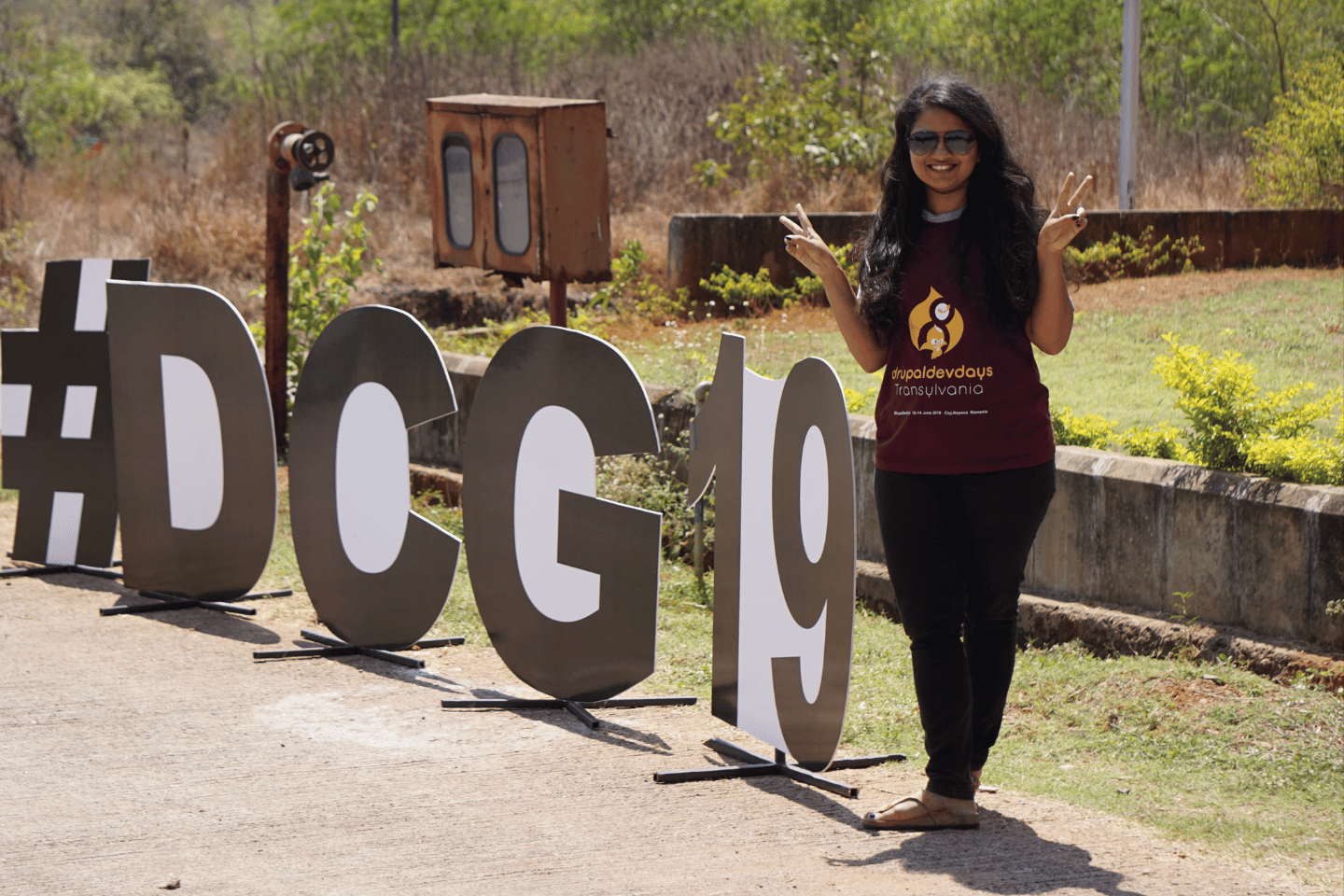
You've played various roles in organizing and volunteering at Drupal events across the globe. What are some of the challenges and rewards of being a lead organizer for DrupalCamps and DrupalCons?
Surabhi: Being one of the core organizers for DrupalCamps or DrupalCons comes with its own set of challenges and rewards. One of the primary challenges is the sheer scope of coordination required. Organizing an event of this scale involves managing a diverse team of volunteers, each bringing different skills and expectations. Ensuring that everything runs smoothly, from planning sessions to coordinating logistics, can be overwhelming, especially when working with international teams across different time zones.
Another challenge is the unpredictability of events. Despite meticulous planning, there can always be last-minute issues—whether it's technical glitches, unexpected changes in attendance, or logistical hurdles. As a lead organizer, it's crucial to stay calm under pressure and adapt quickly to ensure the event continues without major disruptions.
However, the rewards far outweigh the challenges. One of the most significant rewards is the sense of community and connection that these events foster. The positive feedback from attendees, whether it’s through LinkedIn recommendations, direct messages, or simply seeing the excitement on their faces during the event, is incredibly motivating. It’s gratifying to know that the event you helped organize provided a valuable and enjoyable experience for so many people.
Additionally, these events offer a tremendous learning experience. For instance, as an introvert, I found that organizing and participating in these events helped me develop my communication and leadership skills. It pushed me out of my comfort zone and allowed me to grow both personally and professionally.
Another reward is the recognition and appreciation from the community. Receiving praises and thanks from attendees and team members is not just a morale boost, but also reinforces the importance of the work being done. It’s rewarding to see how much impact these events have on the community, from fostering new collaborations to inspiring contributions.
Ultimately, the biggest reward is knowing that the event has brought people together, created lasting connections, and contributed to the growth and strength of the Drupal community. Despite the challenges, being a part of something that has such a positive and widespread impact is incredibly fulfilling.
DrupalCons and DrupalCamps are major events within the Drupal community. How do these events cater to different kinds of attendees, both tech and non-tech? Are there specific strategies in place to ensure that these events are inclusive and engaging for everyone?
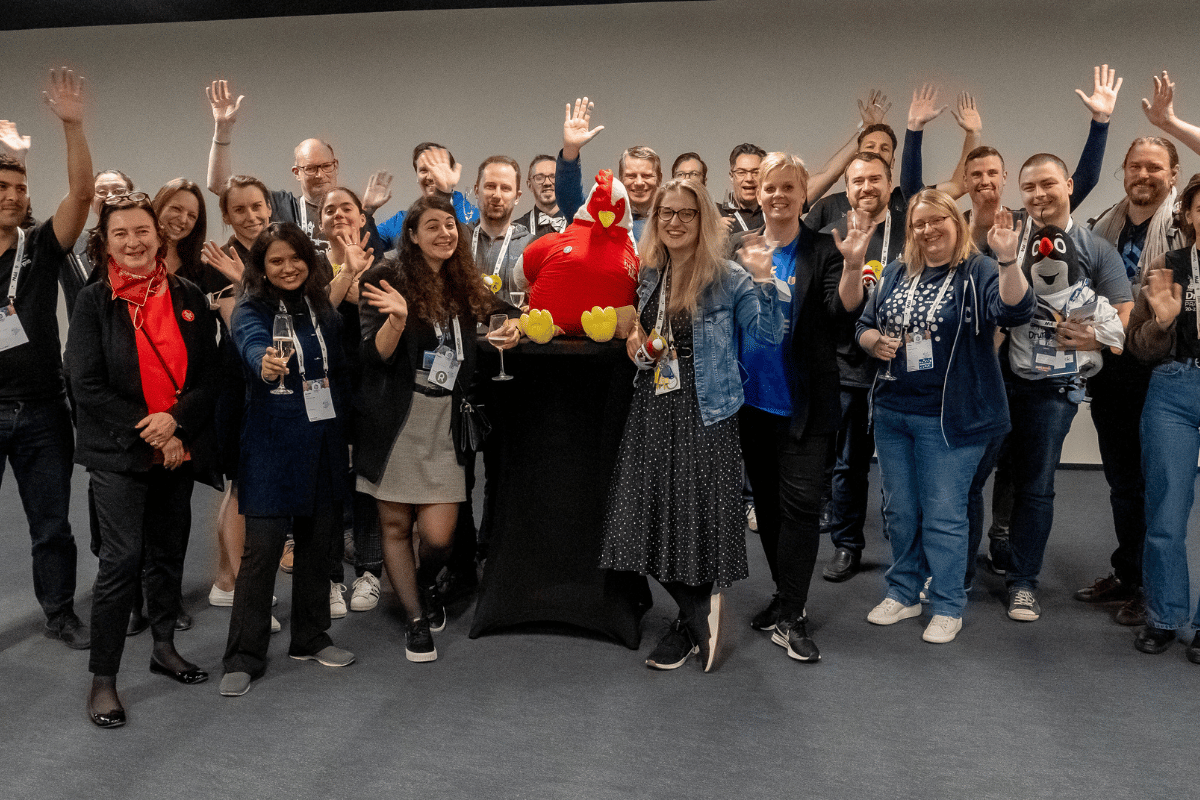
Surabhi: Drupal events like DrupalCons and DrupalCamps are designed to be inclusive and engaging for a diverse audience, whether they come from a tech or non-tech background. The beauty of these events is that they are not limited to just developers or those with technical expertise. They cater to anyone interested in the Drupal community, including project managers, marketers, designers, and even those who are simply curious about what Drupal can offer.
For tech attendees, there are numerous sessions focused on coding, development best practices, and advanced technical topics. These sessions are often led by experts in the field who share their knowledge and the latest developments in Drupal technology. However, the events also prioritize non-tech contributions, recognizing that the Drupal community is built on more than just code.
To ensure that non-tech participants feel just as included, there are sessions on community building, project management, content strategy, and user experience, among others. These sessions are crucial because they highlight the various roles that contribute to a successful Drupal project beyond just development. Additionally, non-core contributions, such as event organization, documentation, and social media engagement, are celebrated and encouraged at these events. These contributions are essential to the community’s growth and are given significant recognition.
Moreover, Drupal events have mentorship programs, particularly at larger events like DrupalCons, where experienced members of the community are paired with newcomers. This system is designed to help first-timers, regardless of their technical background, navigate the event, connect with others, and get the most out of their experience. For example, at DrupalCon, there are specific workshops and contribution days where new attendees can learn about non-code contributions and how they can get involved in the community, even if they don't have a technical background.
Ultimately, these events are structured to create a welcoming and supportive environment for everyone, emphasizing the collaborative spirit of the Drupal community. Whether you’re a developer diving deep into code or a non-tech participant looking to contribute in other ways, Drupal events ensure that there is something valuable and enriching for everyone. The inclusive nature of these events is what makes them so special and vital to the continued success and expansion of the Drupal community globally.
You've been a volunteer coordinator for European Drupal events since Drupal Europe 2018. How has your approach to volunteer coordination evolved over the years?
Surabhi: Back in 2018, when I first took on the role of volunteer coordinator for Drupal Europe, it was my very first experience with an international event. At that time, we were working with very basic tools and processes. We had to rely heavily on manual methods—using spreadsheets to track volunteer tasks, availability, and assignments. It was a lot of work and often required constant updates and communication to ensure everything was running smoothly. This approach, while functional, was labor-intensive and left room for errors or miscommunications.
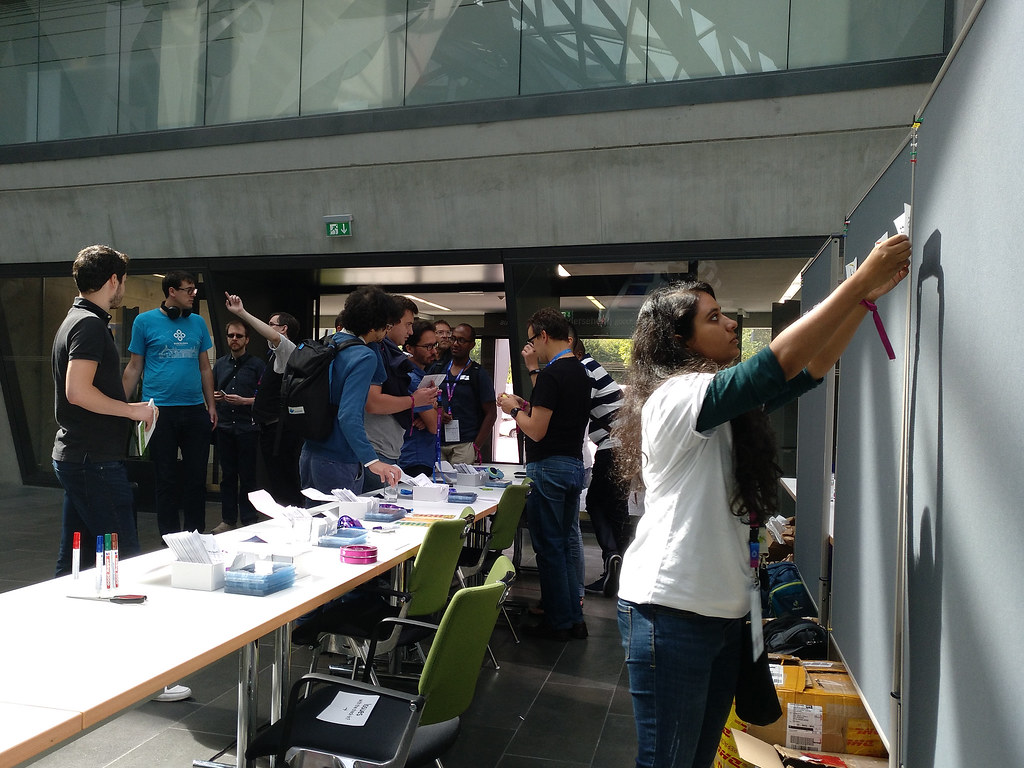
Fast forward to today, and we've made significant strides in how we manage volunteers for these events. For the upcoming DrupalCon Barcelona, we've transitioned from those manual processes to using an app specifically designed to manage volunteer tasks. This app allows volunteers to see available tasks, claim them, and manage their schedules all in one place. It’s still a basic app, but the shift from manual spreadsheets to a digital platform represents a major improvement in efficiency and organization. Volunteers can now log in to the app, view the tasks that need to be done, and sign up for the ones that suit their availability and interests.
This evolution in our approach reflects a broader trend within the Drupal community, where there's a constant drive to improve and innovate. Each year, we take the lessons learned from previous events and try to implement at least one or two improvements for the next. This iterative process helps us refine our systems and create a better experience for the volunteers and everyone involved in the event.
The use of the app also embodies the collaborative spirit of the Drupal community. It was developed by a volunteer who recognized the need for a better system and took the initiative to build it. This kind of contribution is typical within Drupal, where community members are always looking for ways to contribute their skills to improve the overall experience for others. It’s this collective effort and willingness to innovate that keeps the community dynamic and responsive to the needs of its members.
By embracing new tools and approaches, we’ve been able to create a more organized and seamless experience for our volunteers, which in turn makes the events themselves more successful. This evolution in volunteer coordination is just one example of how the Drupal community continues to grow and adapt, always striving to make things better for everyone involved.
Can you tell us about the upcoming DrupalCon Singapore in 2024? What makes it special? How do you envision it contributing to the growth of the Drupal community in Asia?
Surabhi: DrupalCon Singapore 2024 is a highly anticipated event, especially since it's the first DrupalCon in Asia since 2016. This makes it a particularly special and significant occasion for the entire Drupal community. The decision to bring DrupalCon back to Asia after such a long gap highlights the growing importance of the region in the global Drupal landscape. Asia has a vibrant and expanding Drupal community, but many of its members have faced challenges in attending DrupalCons traditionally held in the US and Europe due to the distance, costs, and logistical barriers. By hosting DrupalCon in Singapore, we are effectively bringing the DrupalCon experience closer to home for many Asian developers, designers, and community contributors.
The event is set to be a full-fledged DrupalCon, offering all the features and experiences that attendees have come to expect from such a significant gathering. This includes a wide range of sessions covering everything from technical development to community building, as well as keynote speeches, workshops, and social events like trivia nights. These components are crucial for fostering a sense of community and providing opportunities for networking, learning, and collaboration. Attendees will not only gain knowledge from the sessions but also build relationships that can lead to future collaborations and contributions within the Drupal ecosystem. The Splash Awards are prestigious accolades within the Drupal community, celebrating outstanding websites and digital experiences built with Drupal, now making their debut in Asia at DrupalCon Singapore.
By hosting a DrupalCon in Asia, we are providing a platform for local communities in countries like India, Singapore, Japan, Malaysia, Pakistan, the Philippines, Vietnam, and beyond to showcase their work, share their experiences, and connect with the broader global Drupal community. It's an opportunity for these communities to gain visibility and for local talent to be recognized on a global stage. There is a podcast about DrupalCon Singapore where two of us, Mike Richardson and I, the steering committee members, have talked about the event. It is hosted by Talking Drupal.
Moreover, if DrupalCon Singapore is successful, it could pave the way for more Drupal events in the region. This success would demonstrate that there is a strong demand and enthusiasm for Drupal in Asia, encouraging other countries to host their own DrupalCamps, meetups, and potentially future DrupalCons. This would help further embed Drupal in the region, providing more frequent opportunities for local contributors to engage with the community, share their expertise, and attract new members to the fold. For example, it could inspire local businesses to adopt Drupal for their projects, knowing that there is a robust and active community in their region. Furthermore, a successful DrupalCon in Singapore could lead to stronger partnerships between Asian communities and those in other parts of the world, fostering a truly global exchange of ideas and innovations within the Drupal ecosystem.
You can help make DrupalCon Singapore 2024 a success by making your contribution as a Sponsor.
How do you see the future of Drupal events post-2020? Will there be a permanent shift towards hybrid models?
Surabhi: After COVID, we initially thought hybrid events would be the way forward. However, in practice, they didn't work as well as expected. Many people choose not to attend in person when given the option to attend from home. Moving forward, I believe the future will see a clear distinction between online and offline events, each with its own goals. For example, Dries' keynote is always live-streamed, making it accessible to everyone, but most other sessions are exclusive to in-person attendees. Important sessions can be hybrid, but generally, it's better to keep online and offline events separate with distinct objectives.
Looking back at your journey with Drupal, what are you most proud of, and what are your aspirations for the future within the community?
Surabhi: I've never really thought about specific aspirations for community contributions. I've always gone with the flow, contributing to events that I feel I can help with. Sometimes it's overwhelming because I take on a lot, but in the end, it all gives a nice feeling.
If I had to choose an aspiration, I'd say I want to be able to contribute to all kinds of different regions. I started very locally in India, then got connected with European communities, then US regions. I want to be someone who can contribute to all different regions in the world, touching all continents at least once.
Any final thoughts or advice for people looking to get involved in the Drupal community?
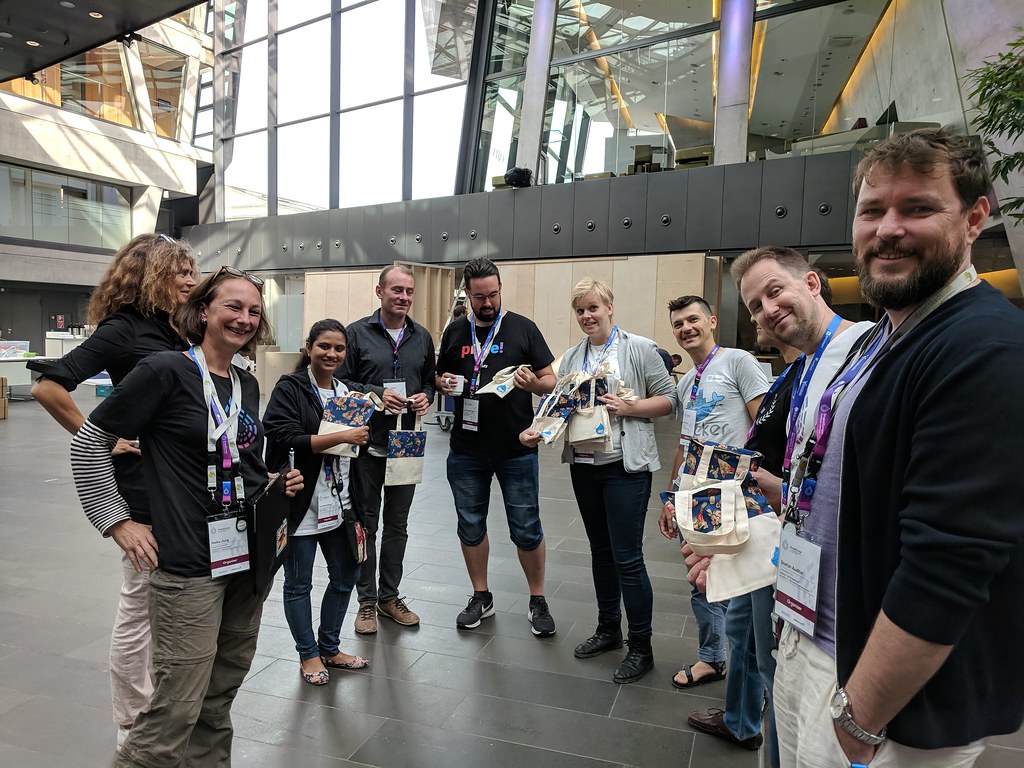
Surabhi: I really feel that people should get to know more about these opportunities. They should step up and do more, but not just for the sake of it. Do it from your heart and you will enjoy it as well. You don't need to question why you're doing it or what you're getting out of it. The good comments and appreciation you receive will motivate you. You'll understand the value when you do it, so just take that first step and get involved.


